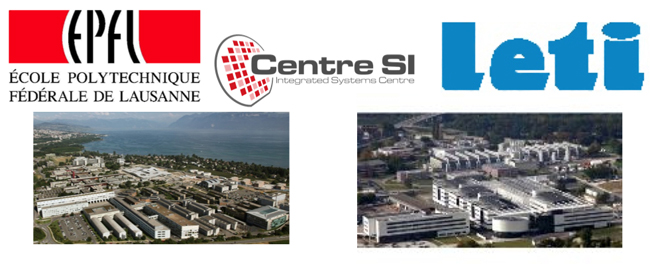Go to
EPFL-LETI Research Partnership

EPFL and LETI signed in 2008 a memorandum of understanding to research and develop advanced technologies. Both partners have complementary expertise in micro/nano-electronics, sensors, software and system design. This collaboration benefits researchers in accessing expertise, laboratories and fabrication facilities at both ends as well as students who can benefit from a broader set of supervisors and research topics.
EPFL and LETI have a joint Flagship Project and several joint research interests.
Flagship project: 3D Integration technologies
3-Dimensional (or 3D) Integration is a means of stacking several layers of electronic chips to form a 3-Dimensional structure. Whereas 3D integration is used today in some restricted domains and for prototypes, this technology is still in the research domain and will become mainstream only in the 2010-20 decade. Beneits of 3D integration include, but are not limited to, higher computation density with shorter wires and higher performance, realization of heterogeneous integration - such as digital, analog and integrated antennas - lower final cost of packages integrated products. Nevertheless, many scientific challenges lie ahead, such as achieving reliable vertical interconnect, extracting head and realizing massively parallel integrated architectures.
Joint research interests
EPFL and LETI share several common research interests, which are subject of common research activities. In particular
- Biosensors and biochips
- Nanoelectronics
- Ultra-low power design
- New electronic materials, such as graphene and silicon nanowires
